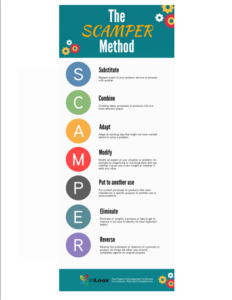I remember my first teacher evaluation. I was nervous! I tried to put on a great show. I felt I did okay. Then, a few days later, I remember walking toward the principal’s office to hear the verdict. I wasn’t sure how this meeting would go. I thought my lesson went well, but I couldn’t tell how my principal felt because he always played them close to the vest. Thankfully, he said positive things. I was thrilled and relieved.
Decades later, I’m still being observed. But now, all my administrators are younger than me. It makes the entire process a lot less intimidating. I still take observation day seriously, but I’m more relaxed about the process.
I wished I would have had the courage to try what I tried last week earlier in my career. I approached my principal about attempting to address a weakness during a formal evaluation. Because he’s a good principal, he welcomed my idea.
My weakness is personalization. It’s something I don’t do enough and I’m confused about the nuts and bolts. I’m not opposed to personalizing lessons, I think it’s the direction in which the world…and certainly education, is headed, but I needed help.
And this, dear reader, is where Jen Wilson enters the scene. Jen is an instructional coach in our school. My principal sent me Jen’s way. I’ve worked with her before and she’s great. She suggested that I take my lesson and apply the SCAMPER method.
SCAMPER is an acronym which challenges kids to apply higher levels of thinking. It’s a template that can be used over and over in every subject.
I challenged my kids to create a stop-motion video on nonviolent protest. Here’s the prompt I gave to students. Here’s a typical kid production.
My experiment of addressing a weakness as the focus of an evaluation was a success. My principal heartily endorsed the idea, he provided awesome resources like Jen Wilson, I gained confidence in terms of personalizing, and my students experienced a solid learning opportunity.
Episode Template
The Problem:
Teachers play to their strength in evaluations.
The Solution:
Impress your evaluator by addressing a weakness.
What you can do Tomorrow:
- Determine your weakness
- Confirm it with your evaluator
- Ask them for resources
- Exploit those resources
- Collaborate with helpers to create your lesson.
It’s totally understandable to play to your strength during evaluations, but such pressure-filled situations are remarkable opportunities for growth.
Listen to “117-SCAMPER through your Next Teacher Evaluation…Starring Jen Wilson.output” on Spreaker.

